Famed director Konstantin Stanislavski said, “There are no small parts, only small actors.” Norma Desmond, in Sunset Boulevard, responds to a question about her once having been big, says “I am big. It’s the pictures that got small.” Rising bass-baritone opera star Luca Pisaroni shares Stansilavski’s point-of-view and doesn’t have to worry, at this point in his career, of sharing Desmond’s.
“Yes, 100%,” he told me last week as we discussed his LA Opera debut in the role of Don Basilio in Rossini’s The Barber of Seville. The production opens this Saturday at the Dorothy Chandler Pavilion and runs through November 12th.
He continues, “I learned this very early in my career. I was 27 years old in Salzburg singing Masetto [in Don Giovanni]. And I thought, small role, I’m Italian, this is going to be a walk in the park. It turns out that between Nicholas Harnoncourt conducting and Martin Kušej director, I learned very quickly there is no such a thing as a small role. If you put enough effort, you can make something interesting in anything you sing. I’m very pleased that I had that chance, because it made the difference in my career right away.”
Don Basilio is not a large role at all. Certainly not for someone who has sung the title role of Don Giovanni at the Metropolitan Opera. It wasn’t the size of the role that appealed to him.
“I like to choose roles that I think are interesting dramatically,” he said in a conversation last week. “In the buffa repertoire Basilio is one of the staples. When they asked me if I wanted to do it, I said immediately yes! It’s a fun role. [There’s] a great tradition of great singers singing this role. So I want to challenge myself and do it.”
At this point it would be good to point out that this is also the first time Pisaroni has sung this role. Though he’s no stranger to Rossini’s work as he counts Il Podestá in Gazza Ladra; Alidoro in La Cenerentola; Mahomet II in La Siege de Corinthe and Mustafá in L’Italiana in Algeri amongst the over thirty roles in his repertoire.
His approach to the mostly comedic role of a music teacher in The Barber of Seville to be a more of our time than might usually be seen.
“I can go 1950 Italian comedy. But I think in 2023 we can probably add another layer in trying to make it a bit more modern,” he revealed. “It’s a challenge. I come with a fresh approach and [am] trying to be as honest to the character that I can be. I have a great cast to work with here because a lot of them have done the role so many times: Isabel Leonard as Rosina and Josh Hopkins [as Figaro]. It’s my intent to try to make it a more sober and modern character.”
When asked if having something in common with his characters was essential, Pisaroni immediately said no.
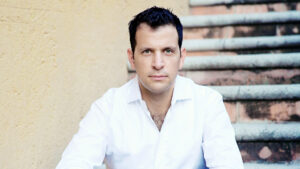
“It’s called acting for a reason – because you act,” he said a bit surprised at the question. “It doesn’t have to be you. You just have to find the motivation to portray the action of the character. It’s not that because I play Don Giovanni I mistreat women or because I play Basilio I try to make a joke every time I say a phrase. You just have to do your job. One thing that I do is to find, in my life experience, something that I can use to either make a joke or convey something and sometimes it helps.”
Once reminded that there is a movement afoot to suggest that casting now should be based on lived-in experience, Pisaroni made the argument for allowing actors to do what they do.
“For me, the great thing about being an actor, it’s actually the opposite. Meaning I can try to play somebody that is completely different than me. Understanding this person makes me a better person because then in real life I can take that experience and say, Oh, you see, they went through this. So I will be even more kind and even more understanding in real life. If we go down that road it’ll never end. Then there is a sub category of subcategories and then your repertoire is going to become so small that then what? I can play only Italian roles because I am Italian? We need to give us credit to have sensitivity to be able to say something even about subjects that are so far away from us.”
What isn’t far away from Pisaroni is the presence of music teachers in his life. One particular instructor played a prominent role in his development as an opera singer.
“His name was Renato Sassola and he was a great tenor of Teatro Colón for 30 years. I met him by chance in Milano. It was a difficult period for me because I was in the conservatory singing a repertoire that was not really my repertoire. I felt I was not ready to sing the kind of stuff like Nabucco. Like Ferrando from Trovatore. I wasn’t happy and he really changed my perspective. He helped me really free my voice, free my technique and my relationship with music and how to produce it. I eventually moved to South America for six months to work with him. He really did make a big difference for me. He passed away some years ago, but he has a really special place in my heart.“
In The Barber of Seville Don Basilio has one very major aria: La Calunnia E’Un Venticello which is about how slander and rumor can have far too much power. In our world today, where anonymity and freedom to express yourself anywhere, anytime without major repercussions, Pisaroni finds the aria to be applicable to a multitude of people.
“Everybody has a telephone. I wish people were a little bit kinder to be honest with you. There are so many performances of great singers that nobody ever knew. They went to Bologna or Parma, it just was a relationship between the singer and the audience in that night. Now you can do a terrible concert in the middle of Brazil, in the Amazon, and everybody is going to know because somebody has a phone and recorded it. Which puts, I think, an incredible stress on performance today.”
Then there’s the subject of reviews with which Pisaroni has a very firm point-of-view.
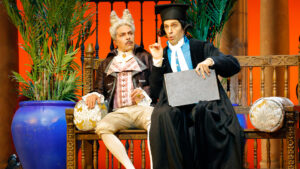
“I think we need to be a bit more careful when we criticize things so harshly. I think for the young generation, there is only one way to protect yourself. Don’t read it. Because at the end of the day, even if it’s a bad review [from] the Los Angeles Times, it is one opinion of somebody that didn’t like you. Doesn’t mean that you are not worth it or that you should stop singing because one person doesn’t like it. Even people that I think are gods like Luciano Pavarotti got bad reviews. If he got bad reviews, Luca Pisaroni can be trashed. It is fine, because he was God for me.”
Not that it was always fine with Pisaroni.
“At the beginning of my career I would do Figaro and I would get 19 good reviews. But the only one I remember is the one that was a bad review. I don’t remember the good ones. Don’t read them and don’t be confronted. But doesn’t mean that you don’t have to have critical thinking. I think you need to be critical and you have to be brutally honest with yourself. And when you’re unhappy about something, work on it. Also you need to have a circle of people that are brutally honest with you who can say this is not good. You need to work on that or you didn’t sound very good, so that you can actually keep working on yourself and grow as an artist, as a singer, as a performer.”
To see the full interview with Luca Pisaroni, please go here.
Main Photo: Luca Pisaroni in The Barber of Seville (Photo by Cory Weaver/Courtesy LA Opera)


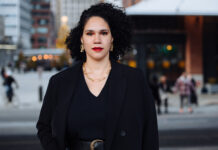




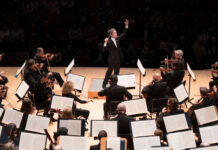



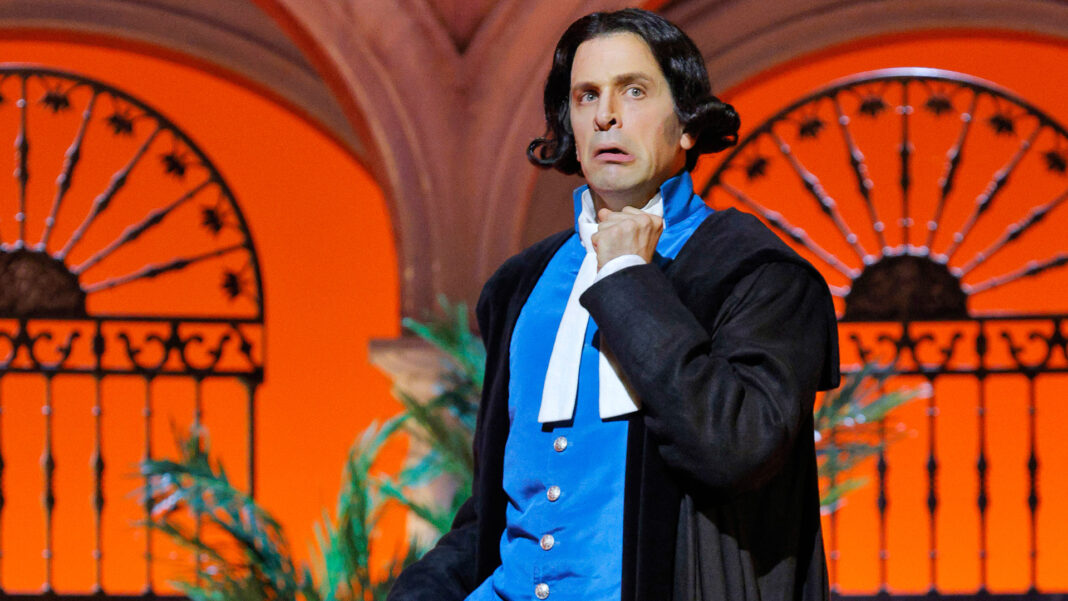
[…] https://culturalattache.co/2023/10/19/bass-baritone-luca-pisaroni-believes-there-are-no-small-parts/ […]